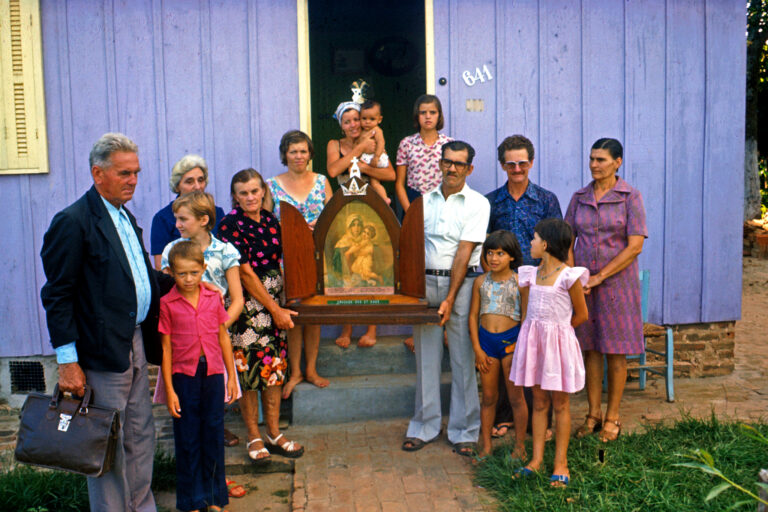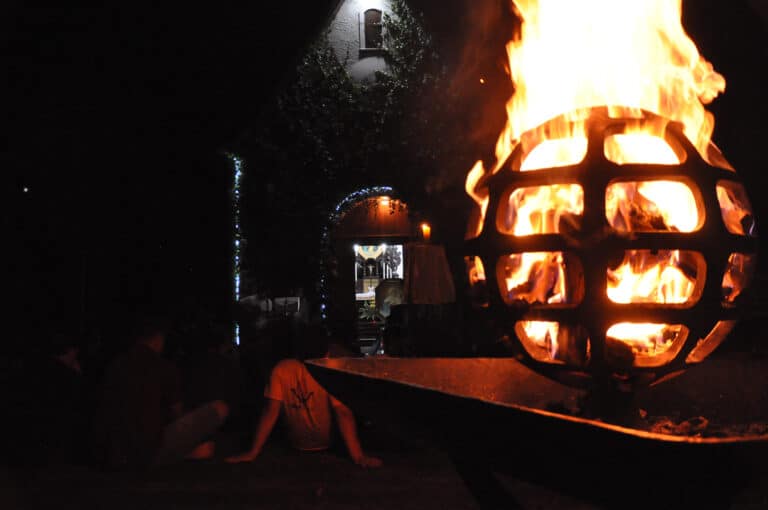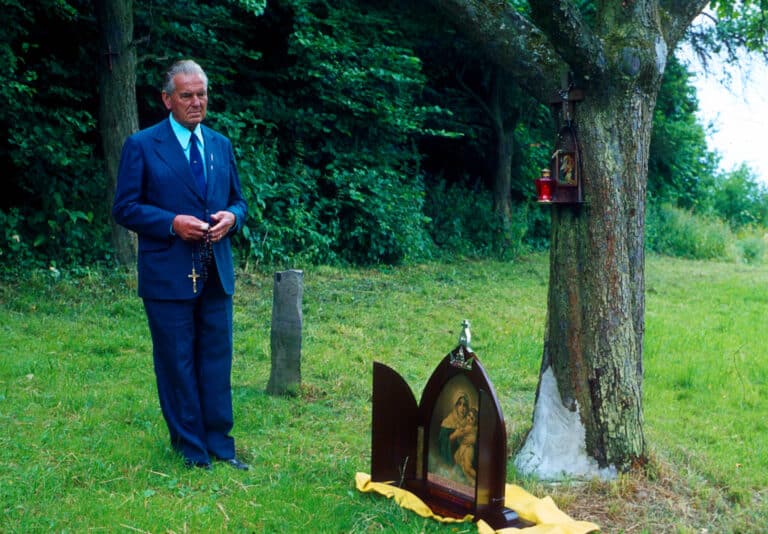When we speak of Deacon John Louis Pozzobon and his holiness, we run the risk of thinking that his family life was shaped by situations very different from ours today, that he did not face the same challenges as we do. However, his family, like ours, went through difficulties and struggles.
It was not easy to be a husband, father, professional and to dedicate so many hours to the Pilgrim Mother Apostolate. But the Covenant of Love and the graces of the Shrine always strengthened him.
Nair Pozzobon, his eldest daughter from his marriage to Vitoria, unveils a little of his family life. She begins by telling us about her mother. After all, Vitoria was a discreet but important figure in John Louis Pozzobon’s life.
Vitoria Pozzobon: a real country girl
Nair says her mother was a true country girl. When Vitoria married John, she could not read nor write and was very shy. She learned many things from her husband and was taught to read and write by him (who also had very little schooling). She gladly helped him in the storehouse – without neglecting her chores – and thereby slightly overcame her shyness.
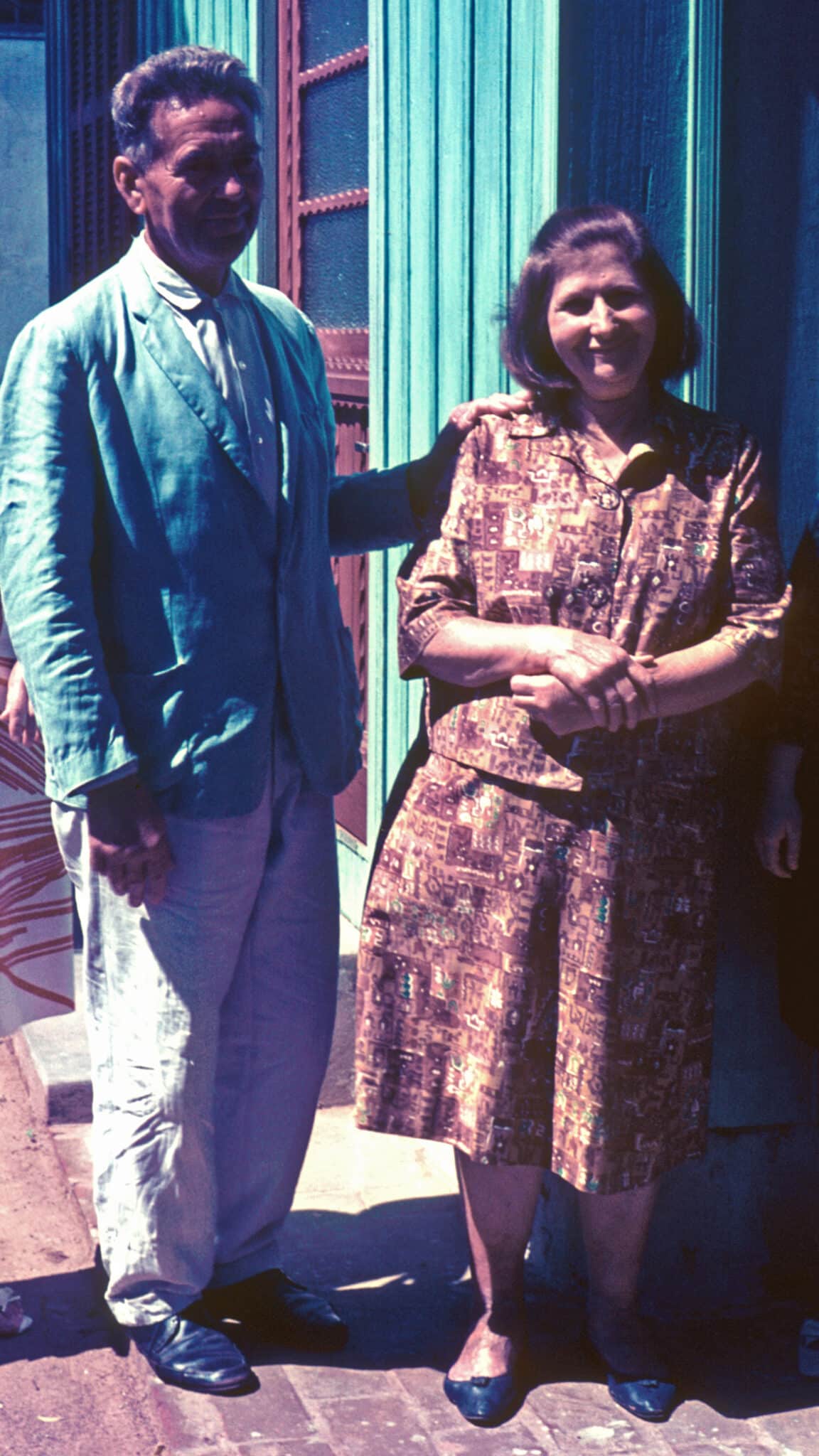
Together with her husband, Vitoria oversaw the education of their seven children: “She was a great mother! A good educator, she educated just like our father. From time to time, she would give me a little spanking. We were educated by our mother and father. My mother was a very good one,” says Nair. When the family had visitors, “she would go out of her way to make them feel at home.”
Nair recalls, “We never saw our parents quarreling. Mom was a simple person and told us she had never gotten into a fight with Dad.”
According to Nair, Vitoria did not participate in the Schoenstatt Movement as often as her husband, but “when there were important events, she also went, and we went with her”. She recalls that when the parish priest went to celebrate Mass in the community where they lived, her mother would prepare a nice cup of coffee for him at home.
A religious family
Religion and daily life were one and the same in this family. They all learned to pray the rosary daily and to say morning prayers from a very young age. Their parents’ example brought their children together to the parish. “We always went, and it wasn’t obligatory. Our parents knew how to educate us. We didn’t say no. Everyone went, no one failed to go,” Nair explains.
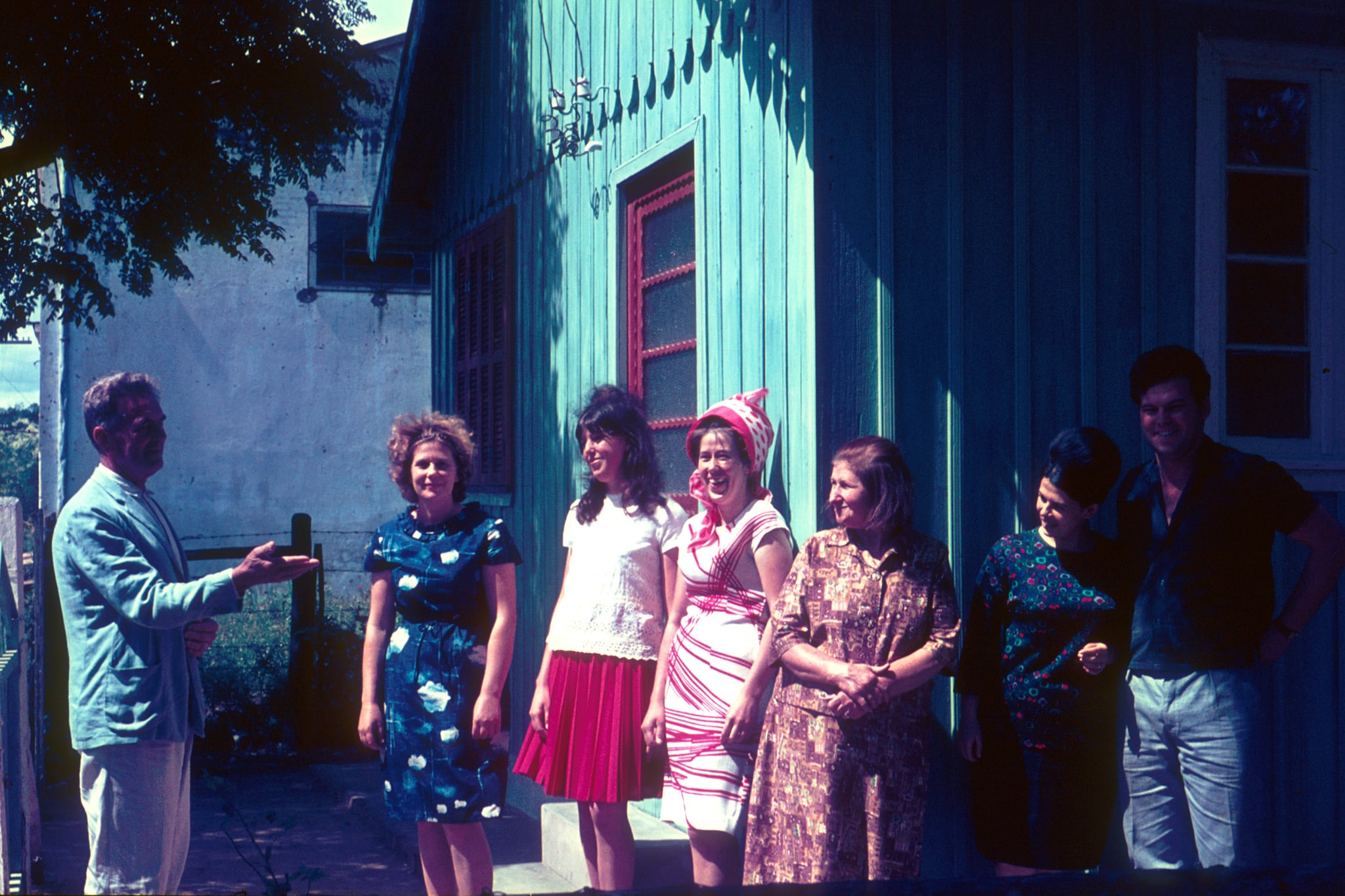
During the period of conflict with the priests, due to Father Kentenich’s exile and the decrees of prohibition in the dioceses, this simple family went through many hardships. Nair recalls, “One day, a priest pounded his fist on the table in our house. He wanted to put an end to it (the Pilgrim Mother Apostolate). My father was very upset and cried. It was hard for him. But my father never abandoned his apostolate”.
Her parents’ respectful attitude towards priests influenced their children’s lives, so there was no rebellion. She explains: “Those were difficulties that we had to go through because that was the reality. You have to know how to cope with them. We never stopped going to mass because of these things. Our father raised us that way, period.”
Relations with family and neighbors
Having a good relationship with neighbors and relatives is another of this family’s virtues. Nair says that there were no relationship problems with them, not even with some tenants they had during certain periods.
When Vitoria’s adoptive mother, who was always considered a mother, came to visit her daughter, John “would give his bed to his mother-in-law so she could sleep on it. Or when his mother came, he did the same thing. His mother did not visit too often, because she lived far away, but his mother-in-law lived nearby and visited frequently”.
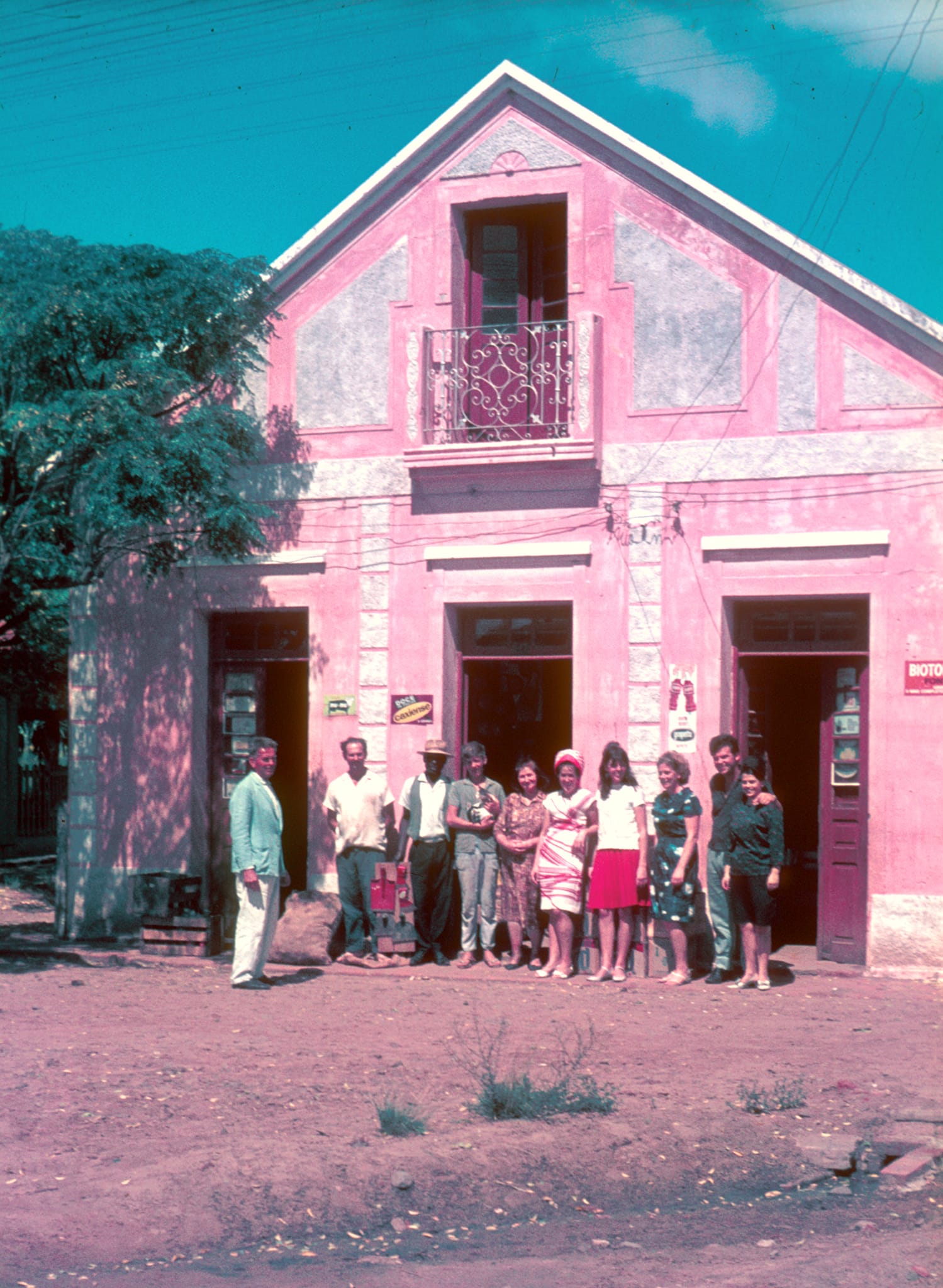
Welcome guests
There was also an aunt who lived with the Pozzobon family. Nair recalls, “My aunt lived with us. She had lost her mother when she was 15 months old, so it was my mother who practically raised her. When my mother got married, my aunt cried and wanted to move in with her sister Vitoria. My father took her to our house and she helped out at home until she got married when she was about 32 years old. My father also helped at home in the evenings when the stores were closed. My mother would go to the kitchen to prepare dinner and my father would play with us to entertain us so my mother could work.”
Father’s love
John’s daughter also remembers that, when she married, her father visited her regularly to see how she and her husband were doing. When Nair turned 45, her father wrote her a letter in which he told her the details of his expectation and joy when she was born. She knew her father loved her because he showed it. “Sometimes, on occasions like our birthday, dad would write a letter and asked to be forgiven in case he had not been a good father”.
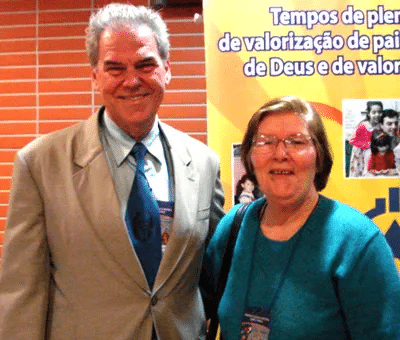
Visiting her parents with her young children was a party: “Mom would do everything she could to make us happy. She was very affectionate with my children and always thought it was too soon when we had to leave. Sometimes when we would say goodbye, Mom would cry and tell us to stay a little longer.”
In closing, Nair recalls a notable event in her life: “One thing I want to say: I lost my almost 19-year-old son. He was so young when he passed away. If it hadn’t been for the spiritual education Dad gave us, the pain would have been so much greater. But because we have faith and have learned to accept everything that happens to us, that helped us a lot. My father loved me very much.”
Source: Schoenstatt Brazil – schoenstatt.org.br

